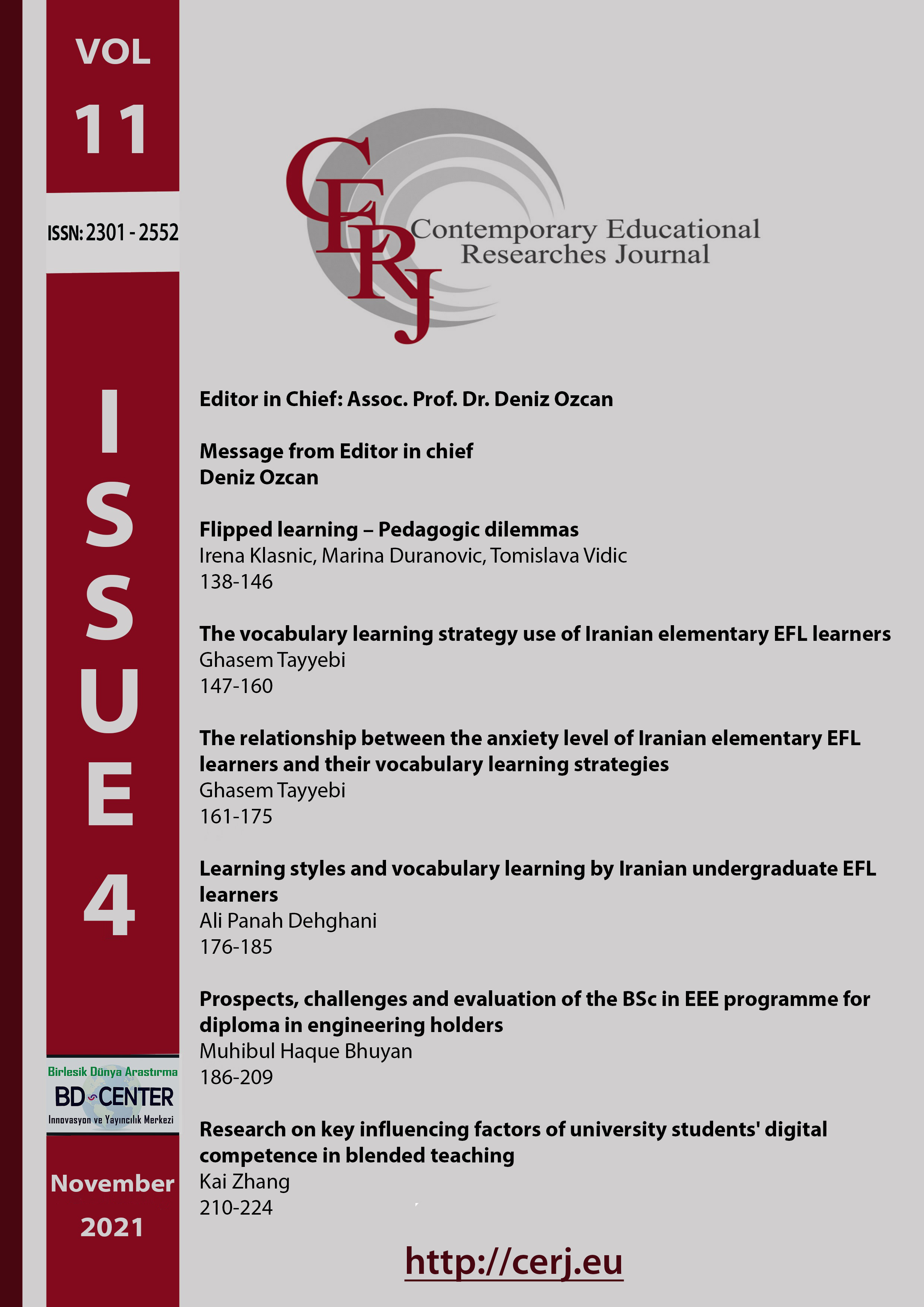Prospects, challenges and evaluation of the BSc in EEE programme for diploma in engineering holders
Main Article Content
Abstract
The acquisition of a BSc in EEE is a requirement for a successful career in engineering. However, not all students in Bangladesh have the opportunity to gain admission into degree programmes. The aim of this research is to report the challenges that the Department of Electrical and Electronic Engineering faced in attracting students to the BSc in EEE programme, as well as how they assessed and evaluated the students. The research was a case study conducted in the fall semester of 2020 during the period of online education due to the COVID-2019 pandemic. Various examination and assessment tools were used for the student performance evaluation. Some of the statistical parameters like average, maximum and median were used for the comparative analysis of the student performances on online quizzes, assignments and the obtained letter grades of the regular and evening programmes. It was found that in most of the cases evening programme students performed better in the same course.
Keywords: Diploma in Engineering, evening programme, online teaching–learning, performance assessment and evaluation.
Downloads
Article Details

This work is licensed under a Creative Commons Attribution 4.0 International License.
Authors who publish with this journal agree to the following terms:
- Authors retain copyright and grant the journal right of first publication with the work simultaneously licensed under a Creative Commons Attribution License that allows others to share the work with an acknowledgement of the work's authorship and initial publication in this journal.
- Authors are able to enter into separate, additional contractual arrangements for the non-exclusive distribution of the journal's published version of the work (e.g., post it to an institutional repository or publish it in a book), with an acknowledgement of its initial publication in this journal.
- Authors are permitted and encouraged to post their work online (e.g., in institutional repositories or on their website) prior to and during the submission process, as it can lead to productive exchanges, as well as earlier and greater citation of published work (See The Effect of Open Access).
